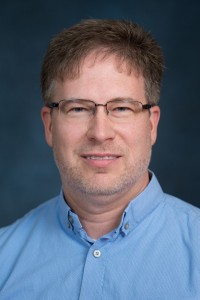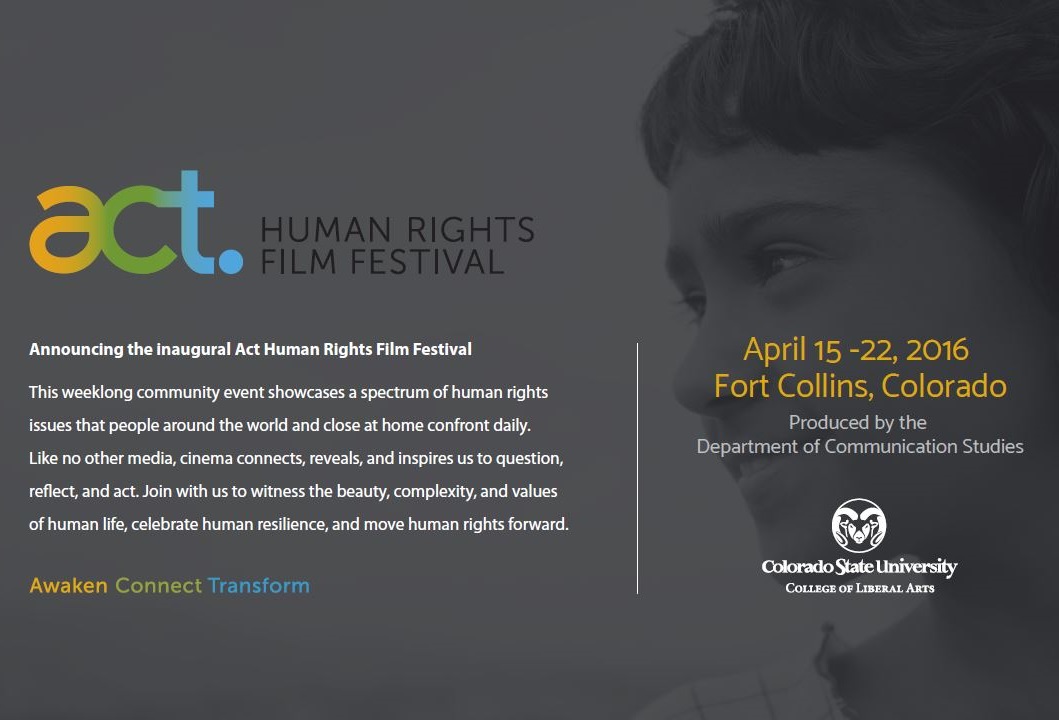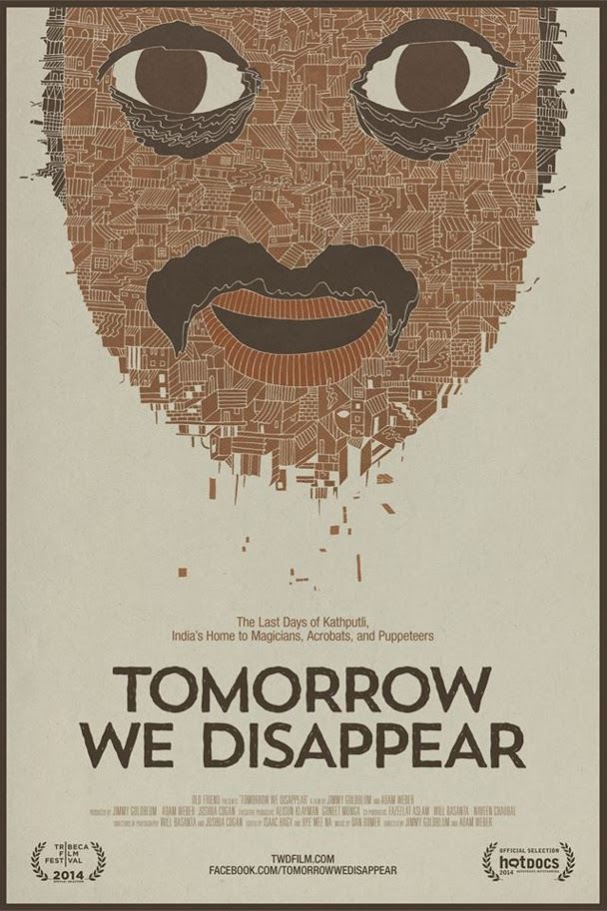
Human rights film festivals are to communication studies professor Dr. Scott Diffrient what the craft beer industry is to Fort Collins: an influential marker of community identity.
In April 2016 the Department of Communication Studies debuts the inaugural, week-long Act Human Rights Film Festival on the CSU campus and in downtown Fort Collins. The festival, which occurs April 15-22, culminates three years of human rights film research Diffrient has conducted as recipient of the William E. Morgan Endowed Chair of Liberal Arts, a three-year post that began in fall 2013.
From the outset, Diffrient wanted to do “something fairly ambitious” with the chair funding. In addition to pursuing scholarship on human rights film, he conjured a week-long human rights film festival that would attract international filmmakers, scholars, and non-governmental organization (NGO) representatives to Fort Collins.
More than a bit ambitious, the Act Human Rights Film Festival is the first major film festival of its kind not only in Fort Collins, but in the state of Colorado.
“Our goal is to create a world-class human rights film festival that features the most compelling and original documentary and narrative fiction films produced over the past two years,” Diffrient says. “A few universities across the country host their own human rights film festivals, but most of these adopt the template provided by the Human Rights Watch’s ‘traveling festival,’ which has a fixed program.”
According to Diffrient, the Act Human Rights Film Festival stands apart from other U.S.-based film festivals. Although the Department of Communication Studies has initiated the event and it will take place on campus during opening and closing weekend, the festival also takes place in downtown Fort Collins at the Lyric Cinema Café. It will also incorporate local, state and national nonprofit organizations in the programming.
Festival organizers are eager to connect with as many community entities as they can in this first festival edition to create an overall format and program that represents the myriad social justice issues that affect both the CSU campus and the Fort Collins community.
Department of Communication Studies Chair Dr. Greg Dickinson likens the festival to a 21st Century expression of CSU’s land grant mission and heritage. “The film festival demonstrates the deep links among teaching, scholarship, creativity, and service,” Dickinson says.
“This festival will extend the knowledge base of our learning institution into the consciousness of our citizenry and bring diverse members of the Northern Colorado community together around matters of tremendous social and political import,” Diffrient says. “The idea of transformation is central to our rationale for creating this festival in the first place.”
The Act Human Rights Film Festival will feature 15 human rights films from around the world, addressing numerous themes, such as human trafficking, LGBTQ rights in Africa, art as resistance and cultural resilience, and others.
Each film screening will be hosted by a moderator who will provide a context-setting introduction to the film and lead a post-film Q&A session with individuals intimate with the creation, production, and subject matter of the film; from filmmakers and producers, to policy experts, scholars, and journalists.
Films will also be paired with a nonprofit organization whose mission and programming resonate with the topic of the film. Nonprofit representatives will be on-hand to help connect film-goers to additional information, opportunities for action, and organizational involvement.
 Opening and closing night galas, post-screening after-parties, a photography exhibit, and other activities will attend the week-long festival, which opens with a screening of Tomorrow We Disappear. The 2014 film showcases events surrounding New Dehli’s endangered Kathputli Colony, which is home to a community of magicians, puppeteers, and circus performers that the government wants to relocate so their land can be bulldozed for development.
Opening and closing night galas, post-screening after-parties, a photography exhibit, and other activities will attend the week-long festival, which opens with a screening of Tomorrow We Disappear. The 2014 film showcases events surrounding New Dehli’s endangered Kathputli Colony, which is home to a community of magicians, puppeteers, and circus performers that the government wants to relocate so their land can be bulldozed for development.
To Diffrient, Tomorrow We Disappear is a powerful example of how cinema can communicate the value of other people’s lives, while helping change audience attitudes or preconceptions about cultures around the world. “Films indeed have the capacity to emotionally affect audiences in ways that other types of cultural production often fail to do,” he says.
The festival’s name, ACT, serves as acronym, verb, and noun. “We have adopted the moniker ‘ACT’ to stand for ‘awaken, connect, transform,’” Diffrient says. Through film, audiences can become aware of issues they may have known nothing about, build connections with each other, and learn about ways they can make a tangible difference at home or on the other side of the globe.
“This festival is about more than showing some really good international films,” Dickinson says. “It’s about community engagement and the transformative power of cinema. We’re putting Fort Collins on the human rights map.”
For updates and information on ticketing, films, the schedule, participating nonprofits and other festival activities, or to join our email list and receive the latest in ACT news, visit www.actfilmfest.org.
